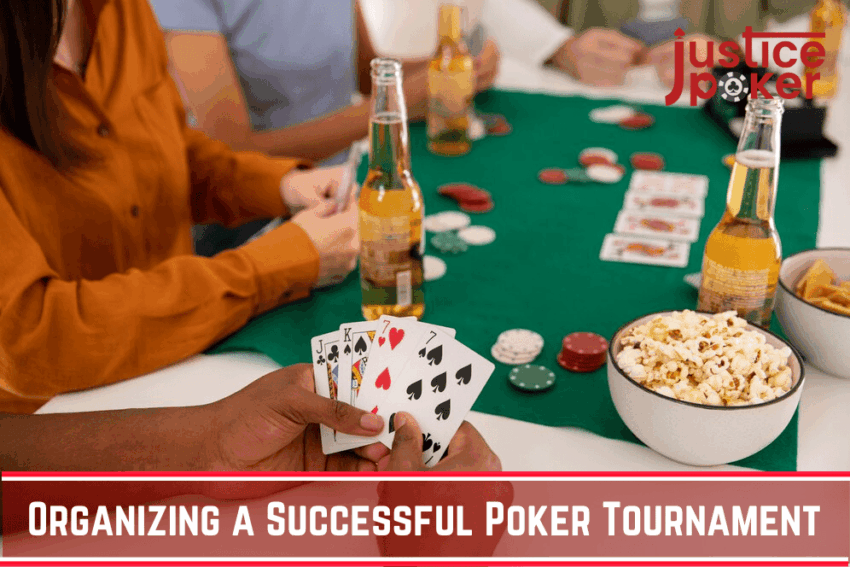If you’re looking to organize a poker tournament, the excitement and challenge of bringing together players for a memorable gaming experience is second to none. This guide will provide you with essential poker tournament tips to ensure your event runs smoothly and engages all participants. From selecting the right poker tournament venue to establishing a solid poker tournament structure, every detail counts for a successful outing. Whether you’re a novice or seasoned host, understanding how to host poker tournaments effectively can elevate your event to the next level. By promoting your tournament wisely, you can attract more players and create an electric atmosphere that keeps everyone engaged.
When it comes to planning a card game competition, many consider hosting special events where poker fans can gather for some friendly rivalry and stakes to match. A well-planned poker showdown can create lasting memories while introducing newcomers to the thrilling world of poker. It’s essential to determine the overall composition of your event, including how to structure the gameplay and what type of tournament format you wish to embrace. Additionally, finding a fitting venue and leveraging social media to generate excitement will play a key role in your success. Hosting a poker night isn’t just about the cards; it’s about cultivating an experience that keeps participants talking long after the chips have settled.
Tips for Organizing a Poker Tournament
When you set out to organize a poker tournament, the first step is to carefully consider the structure and format that will suit your audience best. One of the most important poker tournament tips is to clearly define the type of tournament you want to host. For example, if you want a casual event, a Sit & Go format might be the best choice, whereas a competitive atmosphere may call for a Multi-Table Tournament. The right format not only influences participation but also the type of strategies players will employ during gameplay.
Next, determining the buy-in amount is crucial. A well-thought-out prize structure will help manage expectations among players. Additionally, including options for rebuys or add-ons can be enticing for participants, encouraging them to enter even if they face early elimination. By providing a clear overview of the tournament structure and incentives, you make it easier for players to decide to join, setting the stage for a vibrant poker community at your event.
How to Promote Your Poker Tournament Effectively
Promoting your poker tournament is almost as vital as organizing it, as the success of your event relies heavily on participation. Utilize social media platforms to reach a broader audience. Create visually appealing flyers and engaging posts that include all relevant tournament information such as the date, location, buy-in fees, and prize distribution. Engaging visuals and clear messaging can help grab attention, turning potential participants into committed players.
In addition to social media, collaborate with local poker clubs and gaming communities. Partnering with established organizations can leverage their networks and help promote your tournament to the right audience. Consider implementing a referral program that rewards players for bringing in new participants, which can significantly increase attendance and foster a sense of community around your poker tournaments.
Frequently Asked Questions
What are the essential poker tournament tips for organizing a successful event?
To organize a successful poker tournament, start by clearly defining the tournament structure, choosing the right format (like Texas Hold’em or Omaha), and setting an appropriate buy-in and prize structure. Selecting a suitable venue with enough space and necessary amenities is crucial. Promote the tournament effectively through social media and local poker communities, ensuring to create engaging materials that highlight key details. Finally, prepare comprehensive rules and ensure you have adequate staffing for smooth operations.
How do I choose the best venue for my poker tournament?
Choosing the best venue for your poker tournament involves considering several factors. Look for a location with ample space to accommodate the expected number of participants, such as community centers or established poker rooms. Ensure the venue has necessary amenities like tables, seating, and accessibility features to enhance players’ experience. A well-chosen venue not only supports the tournament flow but also fosters a welcoming atmosphere, making it an integral part of organizing a memorable poker tournament.
| Key Aspect | Details |
|---|---|
| Defining the Tournament Structure | Choose between Sit & Go and Multi-Table tournaments. |
| Format Selection | Popular formats include Texas Hold’em and Omaha with defined buy-in and prize structure. |
| Choosing an Appropriate Venue | Select a venue with sufficient space and amenities like tables and seating. |
| Promoting Your Tournament | Utilize social media and local communities for promotion. |
| Preparing the Rules and Regulations | Prepare clear rules for gameplay, betting limits, and tournament progression. |
| Providing Adequate Staffing | Hire and train qualified dealers to manage the event smoothly. |
| Engaging with Players During the Event | Offer snacks, drinks, and maintain excitement with leaderboards. |
| Post-Tournament Follow-Up | Solicit player feedback and share event highlights to build community. |
Summary
To organize a poker tournament successfully, you must focus on careful planning, from the foundational structure to the thrilling conclusion of the event. By selecting the right tournament format, an appropriate venue, and ultimately engaging in effective promotion, you’ll create an inviting atmosphere that captivates players. During the tournament, ensure a seamless experience with well-trained staff and clear rules, as this plays a crucial role in maintaining the excitement. After the event, follow up with players to build lasting relationships within your poker community. These elements combined will allow you to organize a poker tournament that not only entertains but also leaves participants eager for your next event.
